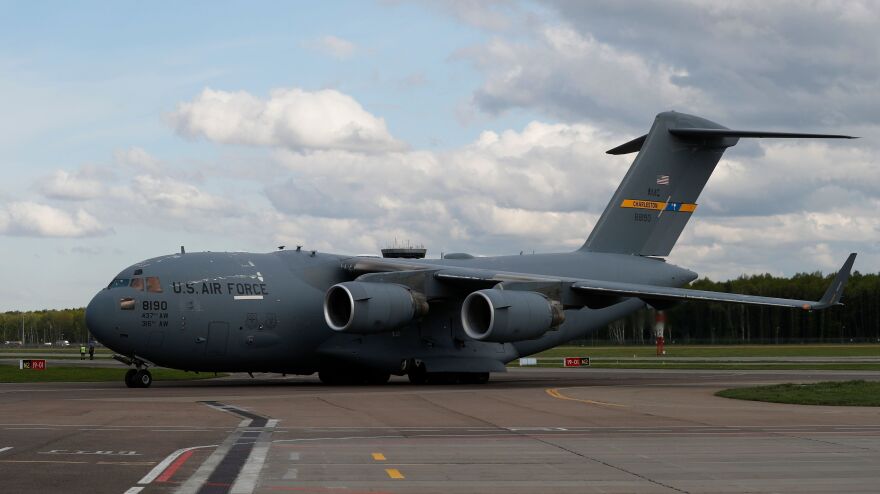Updated August 27, 2021 at 4:54 AM ET
A baby Afghan girl born during a U.S. evacuation flight has a unique name to match her unique birth story: She's been named "Reach," after the aircraft's call sign, Reach 828.
Reach was born Aug. 21 in the cargo bay of a C-17 Globemaster plane shortly after it landed at Ramstein Air Force Base in Germany. The family evacuated following the Taliban takeover of Afghanistan.
According to the U.S. Air Mobility Command, the baby's mother went into labor during the flight and began experiencing life-threatening complications from low blood pressure. In response, the pilot reduced the jet's altitude, which increased the plane's air pressure and stabilized the mother.
Once the plane landed in Germany, the mother safely delivered in the cargo bay of the aircraft. Military Times reports other evacuees shielded the mother with scarves to give her some privacy.
Gen. Tod Wolters told reporters the baby is actually one of three born during the evacuations.
Only Reach was born on the cargo plane itself, though. The other two babies were delivered at Landstuhl Regional Medical Center in Germany. Wolters reports all babies are doing well.
This story originally appeared on the Morning Edition live blog.
Copyright 2021 NPR. To see more, visit https://www.npr.org.

